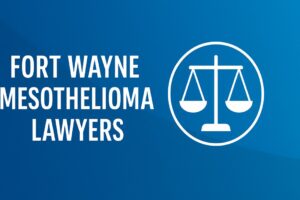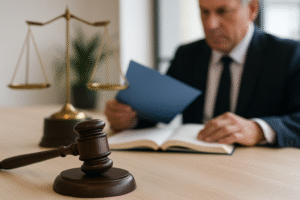Trump Targeted Perkins Coie After Returning to Office
Donald Trump wasted no time after stepping back into the White House. On March 6, 2025, he signed Executive Order 14230. The order struck directly at Perkins Coie, a major law firm long associated with Democratic campaigns. Trump labeled the firm a national threat. He ordered every federal agency to cut ties immediately. That included canceling contracts, revoking access to federal buildings, and banning any future dealings.
The language in the order was aggressive. Trump accused Perkins Coie of interfering in past elections, promoting political agendas, and working alongside billionaire George Soros. He claimed the firm had crossed the line between legal work and political sabotage. The order also mentioned the firm’s diversity programs, suggesting they pushed values that conflicted with the government’s interest. But the order gave no evidence. It offered no investigation, no trial, and no clear legal grounds.
The decision caught many off guard. Legal analysts called it extreme. Critics saw it as an act of political revenge. Perkins Coie had represented Hillary Clinton’s campaign in 2016 and helped connect with Fusion GPS, the firm behind the Steele dossier. That dossier angered Trump for years. By 2025, the resentment had boiled over. This executive order looked personal. It looked like punishment dressed as policy.
Perkins Coie Did Not Back Down
Perkins Coie responded fast. The firm filed a lawsuit against the U.S. Department of Justice. It argued that Executive Order 14230 violated the Constitution. The complaint stated that Trump used presidential power to punish a private law firm over past political work. Lawyers for the firm called the order an act of retaliation, not a matter of national security.
The firm made one thing clear. It had the right to represent clients, no matter how politically charged. That right could not depend on who sat in the Oval Office. The lawsuit demanded an immediate block on the executive order. It warned that the president’s actions crossed a line that could silence law firms through intimidation.
Williams & Connolly, a leading national firm, stepped in to support the case. Their support added weight to the challenge. Other firms stood by quietly. Many feared backlash if they got involved. The pressure was real. But the legal community knew the case would shape future battles between law and politics.
Executive Order 14230 Banned Everything
Executive Order 14230 was not a mild policy change. It delivered a full-scale shutdown of Perkins Coie’s access to the federal government. Every agency had to cut ties. No exceptions. The firm was blocked from bidding on contracts, joining negotiations, or keeping current federal deals. It could not even set foot inside a federal building. Staff lost security clearances overnight. The message was clear—Perkins Coie was no longer welcome in any federal space.
The order didn’t stop with direct bans. It reached into the private sector. Any company working with Perkins Coie had to report the connection. Those who refused faced serious consequences. They could lose their own federal contracts. This created a chilling effect. Partners and vendors suddenly had to choose between their government ties and their business with the law firm.
The administration defended the order as a move to protect national interests. Officials claimed it was necessary to root out threats to the integrity of government operations. But legal scholars saw a different motive. They pointed to the timing, the lack of evidence, and the political history. To them, this wasn’t about national security. It looked like payback. The broad scope of the penalties alarmed legal experts. Many viewed it as a direct strike against the rule of law.
Judge Howell Said the Order Went Too Far
Judge Beryl Howell heard the case and issued a clear, decisive ruling. In 102 pages, she struck down Executive Order 14230 in full.Her judgment made one thing clear—no president has the right to target a law firm simply because he disagrees with its past work. The ruling did not leave room for interpretation. It declared the order unconstitutional and blocked it from taking effect.
Judge Howell didn’t hold back in her language. She compared the order to a royal decree from a king who wanted to silence his critics. In her view, the executive action resembled a power play, not a legal safeguard. She called it a serious misuse of authority. Her opinion emphasized that the Constitution protects legal advocacy, even when that advocacy challenges those in power.
The court also focused on the broader impact. This wasn’t just about a group of high-profile attorneys. The order disrupted the lives of everyone tied to the firm. Receptionists, clerks, paralegals, and custodians—all faced the fallout. They lost access to buildings and resources. Their careers were placed in limbo. Judge Howell acknowledged this harm. She reminded the government that real people—not just headlines—suffer when executive power overreaches.
Legal Community Reacted Quickly
The legal world responded almost immediately. More than 500 law firms rallied behind Perkins Coie. They filed amicus briefs in federal court. These briefs urged the judge to block Executive Order 14230. The message was strong and unified. If the order remained in place, it could open the door for political retaliation across the profession. Any lawyer or firm taking on controversial clients could become the next target.
The case struck a nerve. It wasn’t just about Perkins Coie. It touched the core of legal independence. Law firms rely on the freedom to represent clients without fear of punishment. If that freedom disappears, so does the foundation of the justice system.
Some of the nation’s most respected firms joined the legal fight directly. They stood beside Perkins Coie in court. Others stayed quiet. Not every firm wanted to draw attention. The fear of political backlash was real. No one knew if they might be next.
Judge Howell’s ruling brought a sense of relief. It stopped the order and sent a message that the courts would not allow unchecked executive power. But the tension didn’t vanish. The threat lingered. The legal community understood that future cases could test the same boundaries. This one victory didn’t close the door on risk—it only held it open for now.
The Case Matters to Every American
This case raised a vital question. Can a president use power to punish lawyers whom they represent? The court said no. That answer reached beyond the courtroom. It protected the rights of every citizen. The Constitution guarantees access to legal help. It protects free speech and shields people from government punishment without cause. These rights do not disappear when politics get heated.
Judge Howell’s ruling upheld those core principles. It confirmed that no one—not even the president—can twist the law to serve personal grudges. Trump’s order tried to stretch executive authority. The court stepped in and drew the line. That decision reminded the country of something important. Power must have limits. That balance holds democracy together.
What Comes Next?
The Justice Department did not accept the loss quietly. It filed a formal appeal soon after Judge Howell’s ruling. That move pushed the case toward a higher court. Legal experts say the appeals process could stretch on for months or more. More hearings are likely. More arguments will be made. The legal fight is far from over.
For now, Perkins Coie can operate without federal restrictions. The order is blocked. The firm has regained its access to government buildings and contracts. But that relief is temporary. The future of the ruling now sits in the hands of an appeals court. A reversal could bring the restrictions back. A new ruling could reshape the case—and the law behind it.
Other law firms are watching every step. This case drew a clear line between executive power and legal freedom. The next court will decide whether that line stands or disappears. The outcome could shape how future presidents deal with lawyers, firms, and even the courts. Everything now depends on what the next ruling decides.
Final Takeaway
The Perkins Coie lawsuit is not just about lost contracts. It is about power. It is about legal rights. It is about knowing when to stand up. This case became a symbol of resistance. It challenged the idea that a president can punish those who oppose him. It reminded the country that legal rights must stand even when politics get ugly.
This case also exposed how easily lines can blur. One executive order threatened to silence an entire law firm. That kind of move shakes the foundation of legal independence. The court’s ruling did more than stop the order. It spoke to every citizen, every lawyer, and every judge. It said that no one—not even a president—can rule without limits. The Constitution still holds. The law still matters. And when those in power go too far, the courts still have the final word.
Disclaimer: This article shares public information on the “Perkins Coie Trump Lawsuit Injunction” and does not offer legal advice or promote any legal service. If you have any questions about this, please don’t hesitate to contact us.
Muhammad Suleman Ahmad is a content writer covering lawsuits, legal explainers, and court-related topics for LawsuitDeck.com. His work is structured for clarity and general understanding.


